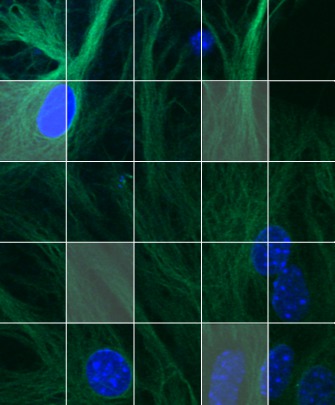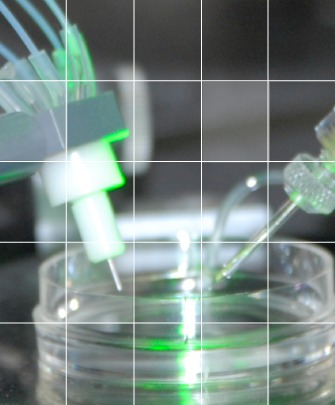WELCOME
The Institute of Functional Genomics (IGF) is a multidisciplinary research centre which is developing a project focused on the functional genomics of physiological and pathological cellular communications in the fields of neurobiology, endocrinology, oncology and cardiology.
This project is based on a multi-scale strategy from 'molecule to systems' and combines structural, biochemical, genetic, epigenetic, omics, physiological and behavioural studies. A major effort is paid to the development of single-cell studies through multiple dimensions and multi-omic approaches, that are necessary to address the complexity of life.
The project of IGF is increasingly based on translational research, promoted by the recruitment of teams of clinicians from different fields (neurovascular, diabetology, neuro-oncology and psychiatry). The objective is to identify new mechanisms and concepts in the field of cellular communications, in order to develop new therapeutic strategies and diagnostic tools.


ALBERTO DE IACO

REGULATION OF ZYGOTIC TRANSCRIPTION IN PLACENTAL MAMMALS
ALBERTO DE IACO
School of Life Sciences, École Polytechnique Fédérale de Lausanne (EPFL), Lausanne, Switzerland.
In metazoans, the fertilized egg contains RNAs and proteins produced during oogenesis but is initially transcriptionally silent. These reservoirs are sufficient to sustain the first embryonic cell divisions until degradation of the maternal products and production of a wave of embryonic transcripts, known as zygotic genome activation (ZGA). Transition from maternal to zygotic control of embryonic development is conserved in all animals, and maternally provided transcription factors have been found to induce ZGA in Drosophila melanogaster and Danio rerio. Our recent work identified the DUX family of transcription factors as master regulators of ZGA in human, mouse, and likely all placental mammals. In contrast to the previously identified ZGA-triggering factors, expression of murine and human DUX is activated upon fertilization of the oocyte. The maternally inherited transcriptional activators responsible for embryonic transcription of Dux remain completely unknown. In our ongoing work, we identified DPPA2 and DPPA4 as activators of Dux expression in vitro. Their pattern of transcription in oocytes and pre-implantation embryos suggests that DPPA2 and DPPA4 are maternally-inherited factors responsible for Dux expression in zygotes and consequent ZGA in 2-cell embryos.
All Dates
- 28 September 2018 14:00
Powered by iCagenda










